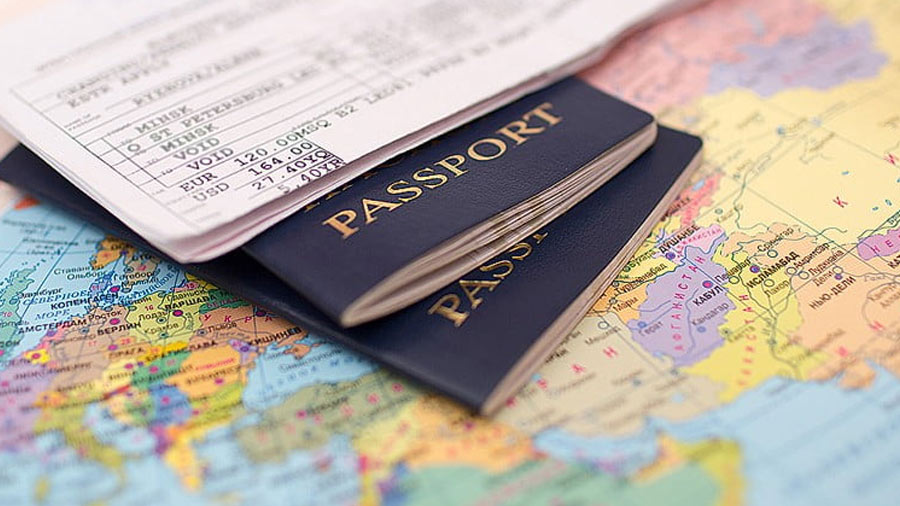China-Ireland Relations: Opportunities in Trade and Investment
Over the years, China has become one of Ireland’s most significant non-EU trading partners, with economic exchanges continuing to expand across multiple sectors. Irish exports, particularly in technology and pharmaceuticals, have gained strong traction in the Chinese market, while Chinese investment in Ireland has also grown, strengthening financial and business connections.
With China’s evolving market landscape and ongoing economic reforms, Irish businesses have a unique opportunity to expand their presence. Sectors such as pharmaceuticals, food and agriculture, and technology present promising growth prospects.
China-Ireland diplomatic relations
China and Ireland established diplomatic relations in 1979, and their ties have deepened over the decades through economic, cultural, and political cooperation. A significant milestone in their relationship was the establishment of the Strategic Partnership for Mutually Beneficial Cooperation in 2012, which ushered in a decade of stable and enduring collaboration. This strong foundation has allowed both countries to maintain constructive engagement even as global dynamics shift.
Trade remains a key pillar of their relationship, with China emerging as one of Ireland’s most important non-EU trading partners. Irish exports, particularly in agriculture, pharmaceuticals, and technology, continue to thrive in the Chinese market, while Chinese investment in Irish sectors such as finance and real estate has increased. Political relations have remained friendly, reinforced by regular high-level visits and diplomatic dialogue.
Ireland’s neutral stance has set it apart from the EU’s increasingly cautious approach toward China, particularly amid growing tensions between Brussels and Beijing. While Dublin declared closer alignment in 2023 with the EU’s “de-risking” strategy, it continues to recognize China as a key global player and fundamental economic partner. Ireland’s appreciation for China’s economic and social development achievements underscores its pragmatic approach to bilateral relations.
Cultural and educational exchanges have also expanded, with a growing number of Chinese students studying in Ireland and Irish institutions strengthening ties with China. Tourism between the two nations has increased, and initiatives such as Confucius Institutes in Ireland have further deepened mutual understanding.
China-Ireland trade relations
China is one of Ireland’s largest trade partners. According to data from Ireland’s Central Statistics Office (CSO), bilateral trade in goods exceeded €21 billion (US$22 billion) in 2024, an increase of 8.1 percent from 2023.
China was Ireland’s sixth-largest export market and fifth-largest source of imports in 2024. Total goods exports from Ireland reached €9.5 billion (US$10 billion) in value in 2024, up 6.1 percent year-on-year, while total goods imports reached €11.8 billion (US$12.4 billion), up 9.3 percent year-on-year.
China accounted for over 40 percent of Ireland’s exports and over 38 percent of imports from Asia in 2023.
Ireland is a major exporter of integrated circuits, with China being the country’s largest market for the product. According to data from UN Comtrade, in 2024, Ireland exported US$4.9 billion in electrical machinery and equipment to China. In 2023, 87 percent of the exports of electrical machinery and equipment consisted of integrated circuits.
Ireland is also a major supplier of pharmaceuticals to China. In 2024, the country exported US$2.3 billion in pharmaceutical products to China, according to data from ICT Trade Map. In 2023, almost half of pharmaceutical exports consisted of blood products, while a further 45.5 percent consisted of medicaments for therapeutic and prophylactic uses, according to UN Comtrade data.
While it constitutes a smaller proportion of exports, Ireland also exports a considerable amount of agricultural and food products to China. These include preparations of cereals, flour, starch or milk (valued at US$269.5 million in 2023), meat and edible meat offal (US$136.9 million in 2023), and dairy and egg products (US$132.6 million in 2023).
|
Ireland’s Top Five Exports to China, 2024 |
|
| Product | Value (US$) |
| Electrical machinery and equipment and parts thereof | 4,915,983,000 |
| Pharmaceutical products | 2,327,254,000 |
| Aircraft, spacecraft, and parts thereof | 705,916,000 |
| Optical, photographic, cinematographic, measuring, checking, precision, medical or surgical instruments and apparatus; parts thereof | 620,028,000 |
| Organic chemicals | 409,100,000 |
| Source: ICT Trade Map; Reporting country: Ireland | |
Ireland’s single largest product category of imports in 2024 was organic chemicals, of which it imported US$2.2 billion. The second-largest product category was electrical machinery and equipment, which amounted to a total value of US$1.8 billion. In 2023, imports of telephone sets such as smartphones accounted for around 42 percent of imports of electrical machinery and equipment.
|
Ireland’s Top Five Imports from China, 2024 |
|
| Product | Value (US$) |
| Organic chemicals | 2,189,052,000 |
| Electrical machinery and equipment and parts thereof | 1,759,429,000 |
| Nuclear reactors, boilers, machinery and mechanical appliances; parts thereof | 1,568,092,000 |
| Furniture; bedding, mattresses, mattress supports, cushions and similar stuffed furnishings | 439,663,000 |
| Toys, games and sports requisites; parts and accessories thereof | 390,544,000 |
| Source: ICT Trade Map; Reporting country: Ireland | |
China-Ireland investment relations
According to data from China’s Ministry of Commerce (MOFCOM), China’s direct investments in Ireland totaled US$380 million in 2023, surging 265.6 percent from the previous year. China’s total FDI stocks reached US$2.04 billion in 2023.
As of 2023, there were over 40 Chinese-invested companies in Ireland, including ICBC International Leasing Co Ltd, CDB Leasing International Co Ltd, and Huawei.
According to MOFCOM data, Chinese companies signed 10 new engineering contracts in Ireland in 2023, with a new contract value of US$24.93 million and a turnover of US$93.37 million. A total of 60 laborers of various types were dispatched, and there were 323 dispatched laborers in Ireland at the end of the year.
Meanwhile, as of the end of 2023, Ireland’s accumulated investment in China reached around US$3.15 billion, with the majority of investments concentrated in companies involved in the production of food, drinks, and construction materials.
Double taxation avoidance treaty
The Double Taxation Avoidance Agreement (DTA) between China and Ireland prevents businesses and individuals from being taxed twice on the same income in both jurisdictions, reducing financial barriers and creating a more favorable investment climate.
The DTA includes provisions on tax residency, dividend withholding taxes, and capital gains taxation, benefiting multinational companies operating between China and Ireland.
The Irish taxes covered by the treaty are:
- Individual income tax;
- Income tax for enterprises with foreign investment and foreign enterprises; and
- Local income tax.
Meanwhile, the Chinese taxes covered by the treaty are:
- Income tax;
- Corporation tax; and
- Capital gains tax.
China’s visa-free policy for Irish citizens
From March 14, 2024, China has extended its unilateral visa-free policy to citizens of Ireland. The policy allowed Irish citizens to travel in China without having to obtain a visa beforehand, initially for a period of 15 days, but which has since been extended to 30 days. The policy will be in place until the end of 2025.
The extension of the visa-free policy to Irish citizens was announced in January 2024, following Chinese Premier Li Qiang’s bilateral meeting with Irish Prime Minister Leo Varadkar, and a reception hosted by Irish President Michael D. Higgins. The move signaled a further deepening in the diplomatic relations between the two nations, with efforts to improve people-to-people exchanges.
Opportunities for Irish companies in China
Pharmaceutical and healthcare sector
As we have seen, Ireland is already a key supplier of pharmaceutical products to China, particularly in blood products and therapeutic medicaments. With China’s aging population and growing demand for high-quality medical treatments, Irish companies specializing in biotechnology, medical devices, and healthcare innovations will continue to find a lucrative market in China.
Other areas with promising opportunities include telemedicine, precision medicine, and advanced drug development, as China continues to expand its healthcare infrastructure and invest in cutting-edge medical solutions.
Technology and electronics
As a major exporter of integrated circuits and electrical machinery, Ireland plays a critical role in China’s high-tech supply chain. Irish companies involved in semiconductor design, AI-driven software solutions, and cybersecurity services can benefit from China’s push for technological self-sufficiency and digital transformation. Agricultural and food exports
Ireland’s reputation for high-quality food products aligns well with China’s increasing consumer preference for premium and safe food. There is growing demand for imported dairy, meat, and cereal-based products, and there is potential for further expansion in organic foods, functional foods, and infant nutrition. Given China’s focus on food security and quality assurance, Irish agribusinesses that emphasize traceability and premium branding can establish a strong foothold in the market.
Financial services and fintech
With increasing Chinese investment in Ireland’s financial sector, there is a strong foundation for expanding cooperation in banking, fintech, and asset management. Irish firms with expertise in digital payments, blockchain technology, and financial analytics can explore partnerships with Chinese banks and investment firms. There is growing demand for cross-border financial services, particularly in wealth management and insurance, presenting additional opportunities for Irish financial institutions.
About Us
China Briefing is one of five regional Asia Briefing publications, supported by Dezan Shira & Associates. For a complimentary subscription to China Briefing’s content products, please click here.
Dezan Shira & Associates assists foreign investors into China and has done so since 1992 through offices in Beijing, Tianjin, Dalian, Qingdao, Shanghai, Hangzhou, Ningbo, Suzhou, Guangzhou, Haikou, Zhongshan, Shenzhen, and Hong Kong. We also have offices in Vietnam, Indonesia, Singapore, United States, Germany, Italy, India, and Dubai (UAE) and partner firms assisting foreign investors in The Philippines, Malaysia, Thailand, Bangladesh, and Australia. For assistance in China, please contact the firm at china@dezshira.com or visit our website at www.dezshira.com.
- Previous Article Le industrie cinesi da monitorare nel 2025
- Next Article China-Cambodia Ties: Boosting Trade, Investment, and Opportunities



























